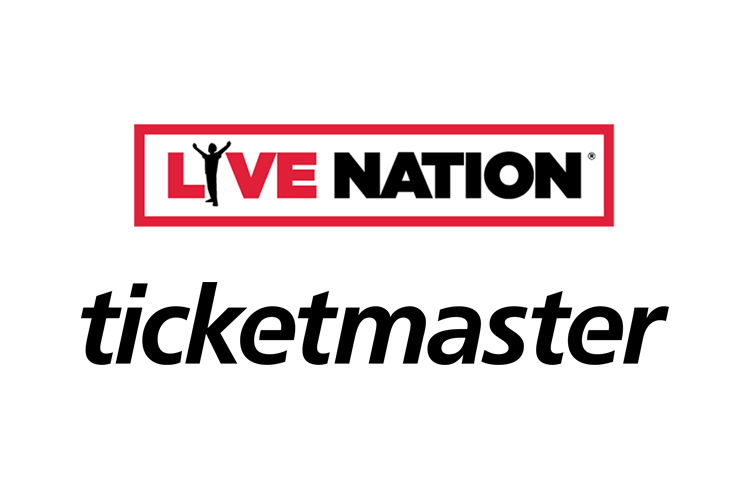Is Live Nation A Monopoly? The Wall Street Journal's Report On Live Music

Table of Contents
Live Nation's Market Share and Control
Live Nation's significant market share in both ticketing and venue ownership is a primary concern highlighted by the Wall Street Journal report. This dominance raises questions about the health of competition within the live music ecosystem. Through its subsidiary, Ticketmaster, Live Nation controls a vast percentage of ticket sales, giving them unparalleled influence over the pricing and availability of concert tickets. Furthermore, their ownership of numerous concert venues across the globe further solidifies their control over the entire concert experience.
- Percentage of ticket sales controlled by Ticketmaster: While exact figures vary depending on the source and year, Ticketmaster's market share consistently remains exceptionally high, often exceeding 70% in many markets. This dominance gives them significant leverage in negotiating with artists and venues.
- Number of venues owned and operated by Live Nation: Live Nation owns and operates hundreds of venues worldwide, ranging from small clubs to massive amphitheaters and arenas. This vast network provides them with immense control over where and how artists perform.
- Geographic reach of Live Nation's influence: Live Nation's impact spans the globe, affecting the live music experience in numerous countries. This widespread influence raises concerns about the lack of competitive alternatives in many markets.
- Comparison of Live Nation's market share to competitors: The WSJ report reveals a stark imbalance. Competitors in the live music and ticketing industries struggle to match Live Nation's scale and reach, highlighting a lack of meaningful competition.
Pricing Concerns and Allegations of Anti-competitive Practices
Criticisms against Live Nation often center on high ticket prices and excessive fees. The Wall Street Journal's report detailed numerous instances of inflated prices, including significant surcharges often exceeding the actual ticket cost. These practices, coupled with allegations of unfair contracts imposed on artists, raise serious concerns about anti-competitive behavior.
- Examples of high ticket prices and added fees: The report cites specific examples of exorbitant ticket prices, inflated service fees, and other charges that significantly increase the overall cost for consumers.
- Allegations of unfair contracts imposed on artists: Many artists allege that Live Nation leverages its market power to dictate unfavorable contract terms, limiting artists' negotiation power and potentially stifling their creative freedom.
- Analysis of the impact of Live Nation's practices on consumer affordability: The high cost of concert tickets, driven in part by Live Nation's pricing policies, has made attending live music events unaffordable for many fans.
- Discussion of potential legal challenges related to anti-trust laws: The WSJ article alludes to the possibility of legal challenges based on allegations of anti-competitive practices, potentially leading to regulatory intervention.
The Impact on Artists and the Live Music Ecosystem
Live Nation's dominance significantly impacts artists. Their ability to negotiate fair deals and access desirable venues is often constrained by Live Nation's market power. Independent venues and promoters also face immense challenges in competing with Live Nation's vast resources and established network.
- Examples of how Live Nation’s power affects artist contracts: Artists often report feeling pressured to accept unfavorable contract terms due to Live Nation's control over venues and ticketing.
- Discussion of the challenges faced by independent venues in competing with Live Nation: Smaller, independent venues struggle to attract major artists and compete with Live Nation's scale and marketing power.
- The potential for reduced diversity in the live music landscape due to Live Nation's dominance: Live Nation's control might inadvertently lead to a less diverse range of artists and musical genres represented in the live music scene.
Counterarguments and Defenses of Live Nation's Business Practices
Live Nation defends its business practices by highlighting its investments in technology, artist development, and infrastructure. They argue that their scale allows for efficient ticketing and venue management, ultimately offering value to consumers. They also counter accusations of anti-competitive behavior by emphasizing consumer choice and the presence of smaller players in the market.
- Live Nation's argument regarding investments in technology and artist development: Live Nation points to its investments in technology as a means of improving the fan experience and supporting artists' careers.
- Claims of offering value to consumers through efficient ticketing and venue management: Live Nation asserts that its size and infrastructure allow them to offer streamlined ticketing and efficient venue operations, benefiting both artists and fans.
- Counterarguments to accusations of anti-competitive practices: Live Nation argues that the market is competitive and that consumer choice exists.
Regulatory Scrutiny and Potential Future Changes
The Wall Street Journal's report has undoubtedly spurred increased regulatory scrutiny of Live Nation's practices. Potential government investigations, lawsuits, and regulatory changes are all possibilities. The outcome of this scrutiny will significantly impact the future of the live music industry.
- Potential for government investigations or lawsuits: The WSJ report has raised the possibility of antitrust investigations and potential legal action against Live Nation.
- Discussion of proposed regulatory changes: Discussions on potential regulatory reform may include measures aimed at promoting greater competition within the industry.
- Prediction of potential outcomes and their impact on the market: The potential outcomes range from increased regulatory oversight to potential divestment or structural changes within Live Nation.
Conclusion
This article analyzed the Wall Street Journal’s report on Live Nation's power in the live music industry, exploring the arguments regarding its potential monopolistic practices and their impact on artists, fans, and the industry as a whole. The concerns surrounding pricing, market share, and potential anti-competitive behavior are significant and warrant continued discussion and scrutiny. Understanding the complexities surrounding Live Nation and its influence is crucial for anyone involved in or passionate about the live music industry. Keep informed about the ongoing developments and discussions related to Live Nation and the potential for regulatory changes affecting the future of live music. Continue researching the topic of Live Nation's market power to form your own informed opinion.

Featured Posts
-
 Is A Coco Sequel A Good Idea Pixars Planned Coco 2 Faces Criticism
May 29, 2025
Is A Coco Sequel A Good Idea Pixars Planned Coco 2 Faces Criticism
May 29, 2025 -
 Pembeli Nft Nike Ajukan Gugatan Tuntut Ganti Rugi Rp 84 Miliar
May 29, 2025
Pembeli Nft Nike Ajukan Gugatan Tuntut Ganti Rugi Rp 84 Miliar
May 29, 2025 -
 Two Stranger Things Stars Back To Back Dystopian Sci Fi Releases
May 29, 2025
Two Stranger Things Stars Back To Back Dystopian Sci Fi Releases
May 29, 2025 -
 First Look Everything Going To Be Great Trailer Unveiled
May 29, 2025
First Look Everything Going To Be Great Trailer Unveiled
May 29, 2025 -
 Is An Arcane Vi And Caitlyn Spinoff Coming A Look At The Latest Ep
May 29, 2025
Is An Arcane Vi And Caitlyn Spinoff Coming A Look At The Latest Ep
May 29, 2025
